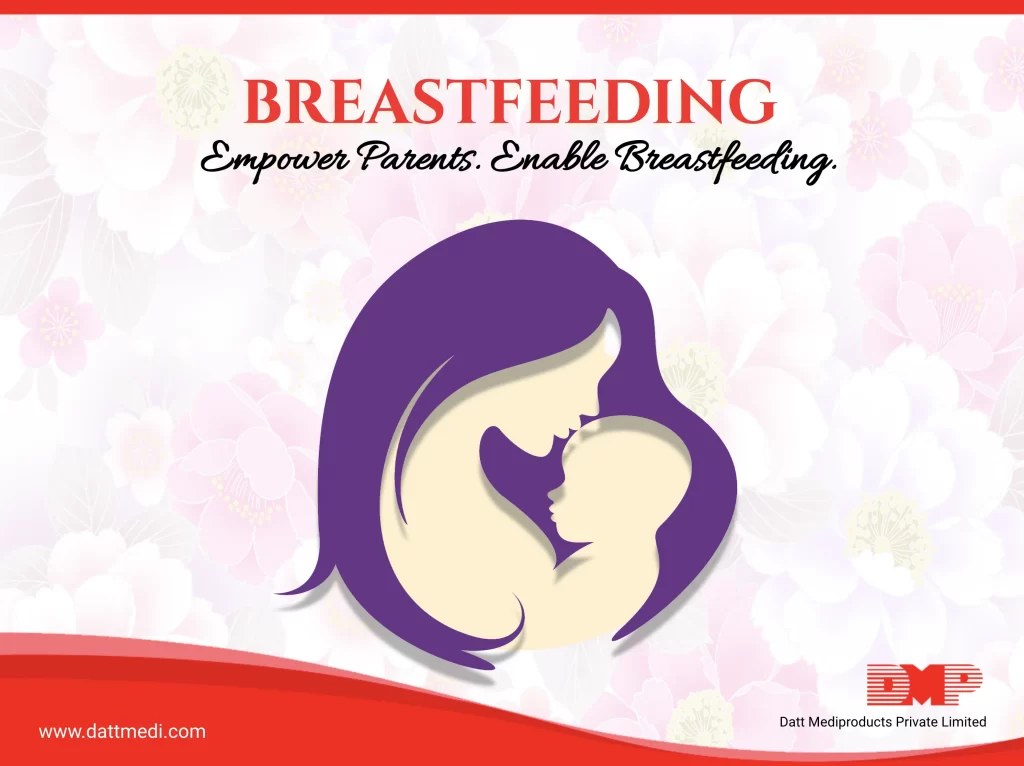
Importance of Breastfeeding for Infants
Breast milk is the natural first food for infants. It is protective and provides all the necessary nutrients and energy that infants need for the first months of life. Breastmilk serves the nutritional needs of a child until the second year of life.
Breastfeeding is crucial for both the baby and the mother. In fact, the pre-milk fluid “Colostrum” secreted with 24-48 hours is like nectar for the infant. It keeps diseases at bay until the infant’s immune system develops. Breastmilk comprises of various factors like anti-microbial factors and natural antibodies which protect infants from infectious illnesses such as gastritis, diarrhea, and pneumonia. The presence of growth factors in breastmilk helps in the child’s growth and development.
WHO recommends exclusive breastfeeding starting within one hour after birth until a baby is 6 months old because of the following advantages:
- Breastmilk promotes an infant’s sensory and cognitive development.
- Breastmilk boosts a baby’s immune systems & protects the infant against various infectious, bacterial, viral and chronic diseases.
- Exclusive breastfeeding brings down infant mortality rates resulted; due to common childhood illnesses such as diarrhea or pneumonia.
- Exclusive breastfeeding helps an infant with quicker recovery during illness.
- WHO* estimates that increased breastfeeding could avert 20,000 maternal deaths each year due to breast cancer. Breastfeeding can save more than 8,00,000 lives every year, a majority being children under 6 months age group.
- Premature babies are given more breastmilk in the first 28 days to have better brain development.
Breastfeeding helps Mums too:
Studies show that breastfeeding is even advantageous for the mother as it decreases her risk of developing breast cancer, ovarian cancer, uterine cancer, diabetes, and even postpartum depression.
- When mothers come in contact with their newborn, a hormone named “Oxytocin” is released which has anti-depressant effects. It helps to keep the mothers feel calm, reduce their stress, and blood pressure. Oxytocin even lowers the risk of heart diseases and type 2 diabetes.
- A study published in the journal “Osteoporosis International”, shows that breastfeeding is beneficial for the bone strength of the mothers in the long run. It improves bone mineralization and reduces the chances of suffering from osteoporosis and fractures in later life.
- Exclusive breastfeeding even acts as a contraceptive method by delaying the return of the mother’s menstrual period, which can help extend the time between pregnancies.
- Breastfeeding helps your body recover faster from pregnancy and childbirth.
World Breastfeeding Week (WBW) is a global campaign.
- “August” is the Breastfeeding Month.
- The campaign is celebrated every year in the first week of August starting 1st till the 7th.
- The main agenda of this campaign is to create awareness and galvanize action on themes related to breastfeeding.
The theme of the 2019 Campaign:
“Empower Parents. Enable Breastfeeding.”
Tips for Working Mothers:
- Breastfeeding is a commitment of a mother for her child. Working mothers can pump and store the milk for their children.
- The more you pump; the more milk will be produced. Full time working mothers can pump for 15 minutes every 2 hours during their workdays.
- Infants should be breastfed whenever they are with their mothers. It stimulates milk production. Thus, a greater supply will be available when you pump.
Mother’s Milk Banks in India:
A human milk bank is a service provided by the hospitals or nursing homes, where breast milk is collected, screened and stored. This milk is donated by healthy lactating mothers, who willingly donate the milk.
1. Divya Mother Milk Bank, Udaipur, Rajasthan
2. Lokamanya Tilak Hospital (Sion Hospital), Sion, Mumbai
3. Deena Nath Mangeshkar Hospital and Research Centre, Pune
4. SSKM Hospital, Kolkata
5. Institute of Child Health, Egmore, Chennai
6. King Edward Memorial Hospital (KEM), Parel, Mumbai
7. Amara Milk Bank (in collaboration with Fortis la Femme), Greater Kailash, New Delhi
8. Sir JJ Group of Hospitals, Byculla, Mumbai
9. Cama Hospital, Fort, Mumbai
10. King George’s Medical University (KGMU), Uttar Pradesh, Lucknow
11. Amara Milk Bank (In collaboration with Fortis la Femme), Greater Kailash, New Delhi
12. Vijaya Hospital, Chennai
We @DattMediproducts understand the importance of breastfeeding in sustainable development as a core practice which not only affects children but also adults.
It also supports the World Breastfeeding Week #WBW Campaign this year and more years to follow. We value that wellbeing is important from the start of life, so, respect each other and care for the world we share.
Support Breastfeeding & Help Improve the Health, Wellbeing & Survival of Women and Children around the world.




